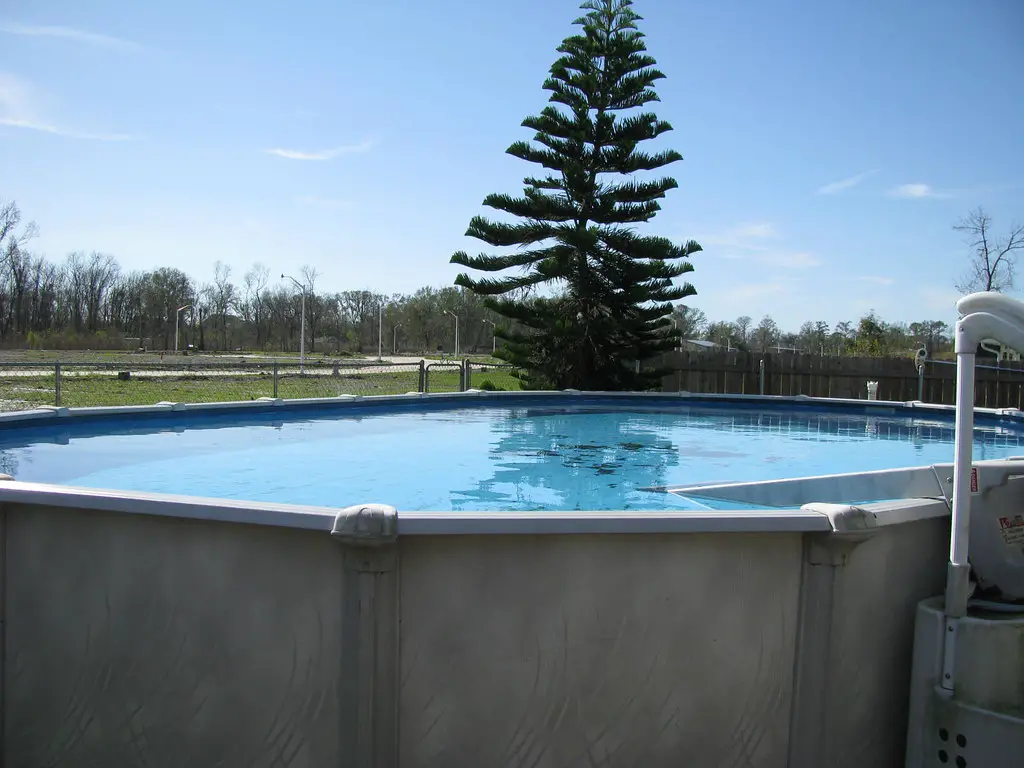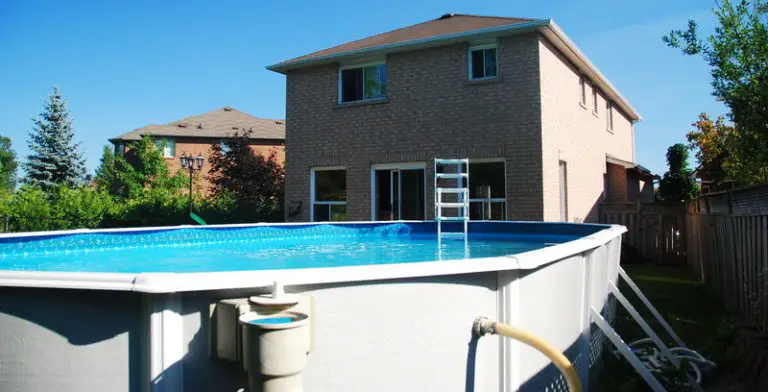Everyone that doesn’t live right on the beach knows that above-ground swimming pools are a fun addition to anyone’s backyard. They’re relatively cost-effective, and since they’re free-standing, temporary structures, you can move or dismantle them whenever you want. However, a question comes to mind: does an above-ground pool increase your property taxes?
Your property taxes would only increase if you add a permanent fixture to your property, such as an inground swimming pool. Above ground pools aren’t permanent & can be removed, they won’t increase your property taxes.
With that being said, keep in mind that above-ground pools don’t add value to your property as indoor or in-ground swimming pools do.
Read on to know more about pool property taxes, along with the advantages and disadvantages of above-ground pools.
Why Do Inground Swimming Pools Increase Property Taxes?
Inground Swimming pools increase your home’s property taxes because inground swimming pools add value to your property. It all comes down to supply and demand; more and more homeowners are looking for properties with swimming pools but only a recorded 5% of pools have homes. Therefore, if a buyer finds a house with an indoor pool, it has a higher chance of being sold.
Adding a swimming pool to your home is classified under “home improvements,” which are among the most common reasons for an increase in property tax.
Depending on the market, your swimming pool may add as little as 5% or as much as 30% to the overall cost of your property.
From here, your property taxes are determined by the assessed value of your home and then multiplied by your local tax rate.
For instance, if your property is worth $500,000 and your property tax rate is 2%, your property tax bill might cost around $10,000 annually.
犀利士
Do Above-Ground Swimming Pools Increase Your Home’s Property Tax?
Simply put- No, above-ground pools don’t increase your property tax; mainly because they don’t add any value to your property. There are three reasons why that is:
Above-Ground Pools Are Free-Standing
Simply put, above-ground pools aren’t a permanent fixture in your home. Instead, it’s classified as a tangible personal property that can be dismantled and taken away at will.
Unlike inground pools, above-ground pools stand on their own. Their stability primarily depends on their framework and the water they house inside their walls. Moreover, they don’t have any type of service connection or plumbing attached.
Above-Ground Pools Can Be Repositioned
Since above-ground pools aren’t fixed into the land, they can easily be moved and repositioned anywhere. In fact, you can even place them inside your house if you wish!
They can easily be dismantled, too. Simply drain the pool, dismantle the filtration system, and take the frames apart piece by piece. You can then store them away in your garage or even take them with you when you’re moving to a new place.
Above-Ground Pools Have an Expiry Date
Compared to in-ground pools, above-ground pools have an expiry date. Even with frequent care and maintenance, they’ll need to be replaced over time.
The vinyl liner on an above-ground pool usually lasts 6-12 years before it requires replacing. The frame, on the other hand, can last a full 10-20 years before its life expectancy runs out. Overall, a high-quality above-ground pool that’s regularly maintained can last anywhere between 10-20 years.
Inground pools have a considerably longer lifespan than above-ground pools. Compared to the above-ground pool’s 20 years, inground pools can last well over 50 years. With proper maintenance and repair habits, this number is easily doubled.
The Advantages of Above-Ground Swimming Pools
Above-ground pools have a ton of advantages. If you’re planning to install an above-ground pool but don’t quite know if it’s right for you, some of these advantages might change your mind.
Budget-Friendly
Installing inground pools requires you to hire several contractors to excavate the pit, install
plumbing, apply shotcrete, and a ton of other complex and costly services. You’ll also have to acquire several permits with your local permit office. It adds up.
Above-ground pools need none of that; in fact, most above-ground pools can be installed by a single person! Plus, they’re extremely cost-effective since you’ll only need to pay for the pool itself.
Easy and Quick to Install
It’s summer, and your kids want to go for a swim. Instead of driving them to the local swimming pool or the beach, why not install an above-ground pool, instead? If you want a pool ASAP, above-ground pools are your answer.
Requires Little Maintenance
Above-ground pools aren’t as big as inground pools. As such, they’re easier to maintain and clean. Moreover, they don’t require much chemicals and upkeep, thus saving you a lot of time and money.
The Disadvantages of Above Ground Pools
Above-ground pools come with their fair share of disadvantages. Here are the most notable ones:
Not as Visually Appealing as Inground Pools
Let’s be honest: above-ground pools aren’t as attractive as inground pools. Some may even call them cheap and ugly. Without the proper deck, above-ground pools can look quite tacky and incomplete.
However, as long as you liven things up with landscaping, set the mood with lighting, and surround it with a deck, your above-ground pool will look stunning.
Don’t Add Value to Your Property
As we’ve discussed earlier, above-ground pools don’t increase your property’s tax because they don’t add value to your overall property. In fact, they may actually lower your property’s value depending on the buyer.
Regardless, it’s quite easy to remove these pools from your backyard, so your original property’s price won’t really be affected in the long run.

Frequently Asked Questions About Taxes & Insurance Related To Pools
Although I am not a financial advisor, there are a couple of questions I commonly get asked as an experienced swimming pool contractor that works with both in-ground and above-ground pools. See below and enjoy!
Will A Pool Affect My Home Insurance Premiums?
Your home insurance premiums are likely to increase if you install any type of pool on your property. This is because there’s a greater chance that an accident will happen on the property due to the pool installed.
Can I Write Off A Swimming Pool On My Taxes?
You can’t write off your swimming pool on your taxes for legal purposes, especially if it’s an inground pool. You can only claim a tax break if your assessor has concluded that your pool is used for health purposes only, not for leisure.
Our Final Thoughts on Swimming Pools Increasing Your Property Taxes
When considering if an above ground pool would increase your property taxes, know one of the biggest advantages of above-ground pools is that they won’t increase your property’s taxes, while the more expensive inground pools will have a small impact on your property taxes.
Above-ground pools are moderately easy to install and they are not too expensive to properly maintain making them a great summer purchase for your family.

Hello, I am a writer and marketing specialist in Kansas City, MO. My love for swimming pools started as a child when I would visit my aunt & uncle’s inground swimming pool on a frequent basis over the summer. Since then I have taught swimming lessons at a Boy Scout Camp, participated in the full setup, installation and maintenance of my father’s inground swimming pool, as well as enjoyed constantly researching everything there is to know about swimming pools for 5+ years. I enjoy all water related sports, being part of the online swimming pool community and always learning new things!


Leave a Reply